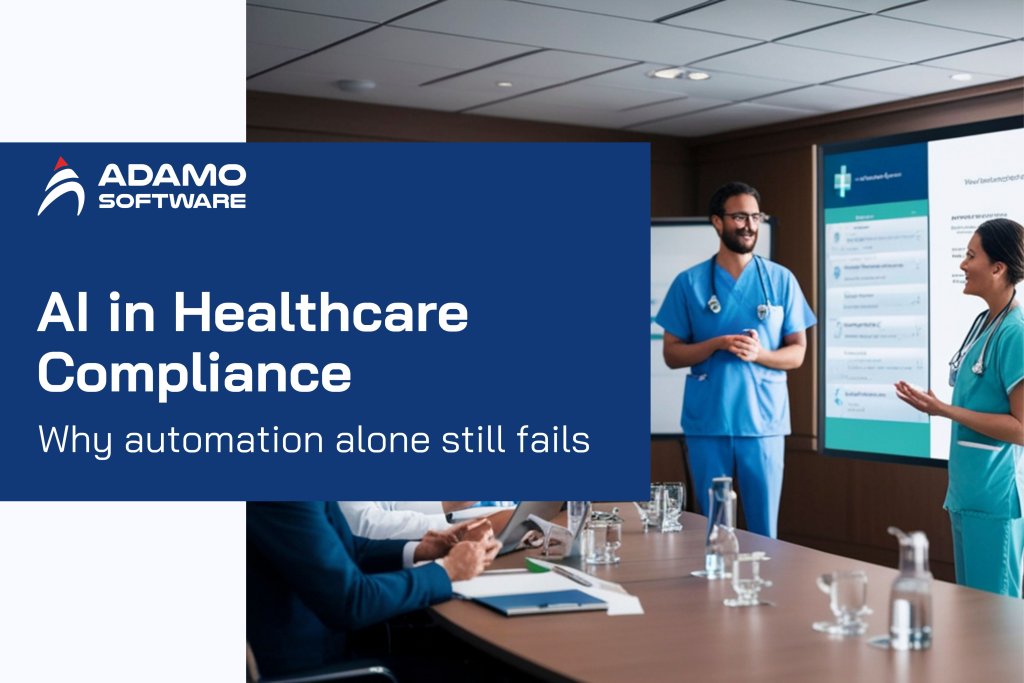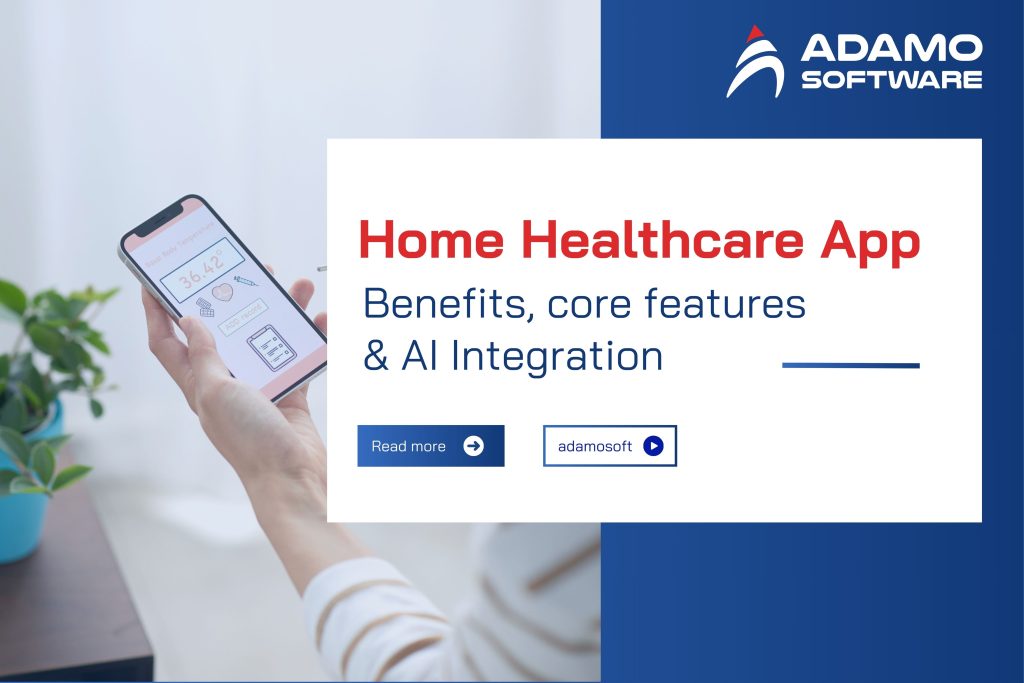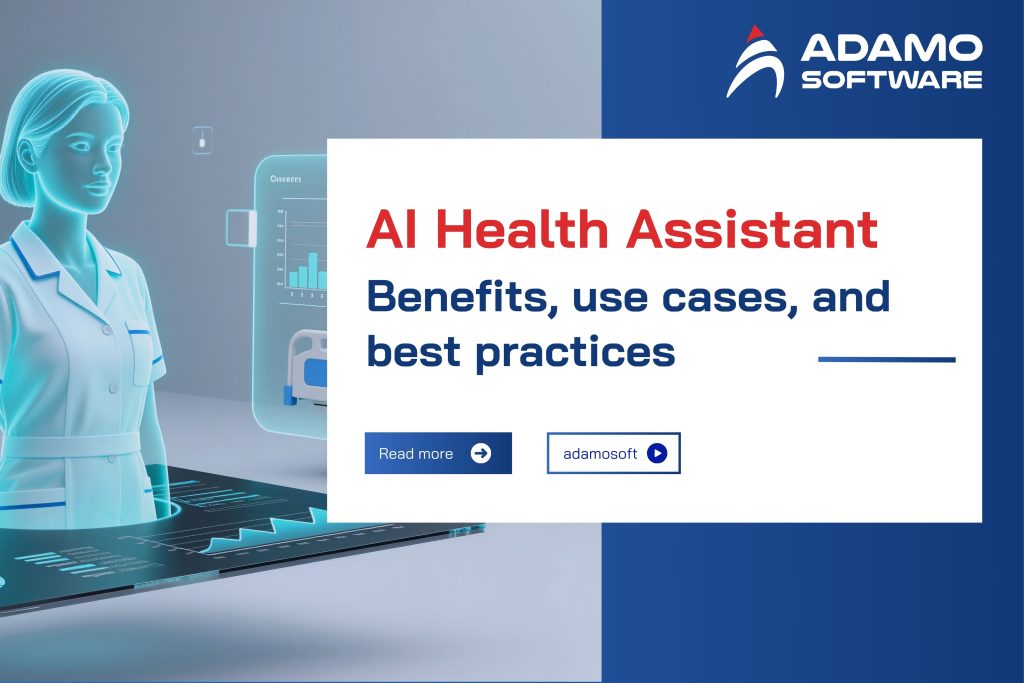Top Promising EHR Integration Benefits for Better Quality Healthcare
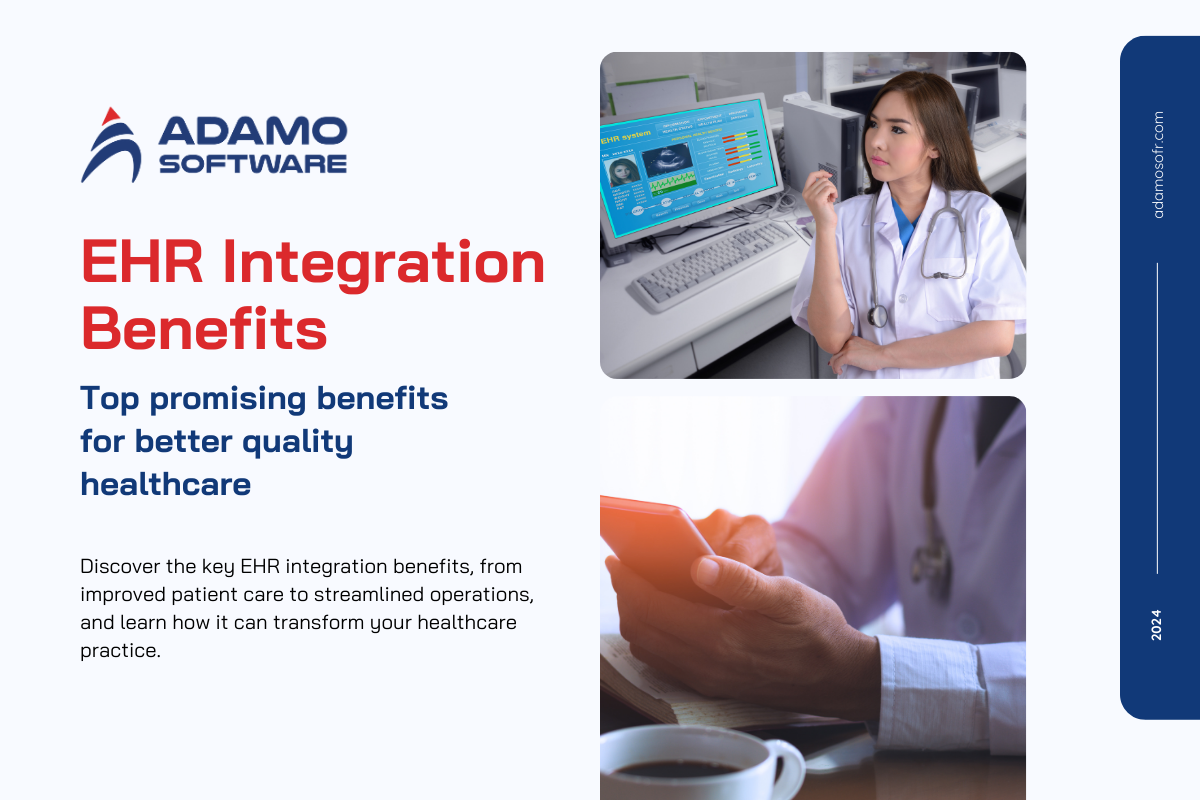
Nowadays, healthcare is changing drastically, and it is crucial to prioritize efficiency and improve patient care. With the increase in technology use in this sector, EHR stands as one of the most powerful assets available to healthcare providers. EHR integration benefits are immense, as it provides the patients’ data, improves the work of the healthcare workers, and increases communication between them.
The key to this innovation is the ability to integrate different healthcare systems, thus providing a more global perspective of the patient. EHR integration benefits not only healthcare professionals but also patients who receive more personalized and timely care. This integration reduces errors, cuts duplicate testing, and guarantees that caregivers involved in the patient’s care have the same information.
If you are still wondering whether to implement EHR integration for your clinic, this article is for you. This article will uncover the key EHR integration benefits and some notable market data for this technology. We will also discover some of the best EHR-integrated software currently available on the market and discuss the future of EHR integration.
All that information shall give you a better idea of the potential of EHR integration and reason to have one in your healthcare system. Now, let’s read on and discover the promising EHR integration benefits!
I. EHR Market Statistics
The Electronic Health Records (EHR) market has been growing rapidly across the world. Currently, it is $27.1 billion in revenue by the end of the year 2023. This growth is expected to continue, and the market size is expected to reach $45.9 billion by 2033. Those numbers are proof of how EHR integration benefits our healthcare system today.
Both the cloud and the on-premise solutions are fueling this growth. They are expected to add $21.11 billion and $24.79 billion to the market by 2033, respectively. Notably, inpatient EHR systems are the most popular type, accounting for 55% of the market share. This dominance is mainly because of their importance in healthcare facilities. Among EHR vendors, Epic Systems Corporation leads the U.S. market, commanding a significant 28.21% share.
This constant growth underlines the fact that more healthcare facilities worldwide are implementing EHR systems. This once again stresses the value of this technology in enhancing the patients’ outcomes.
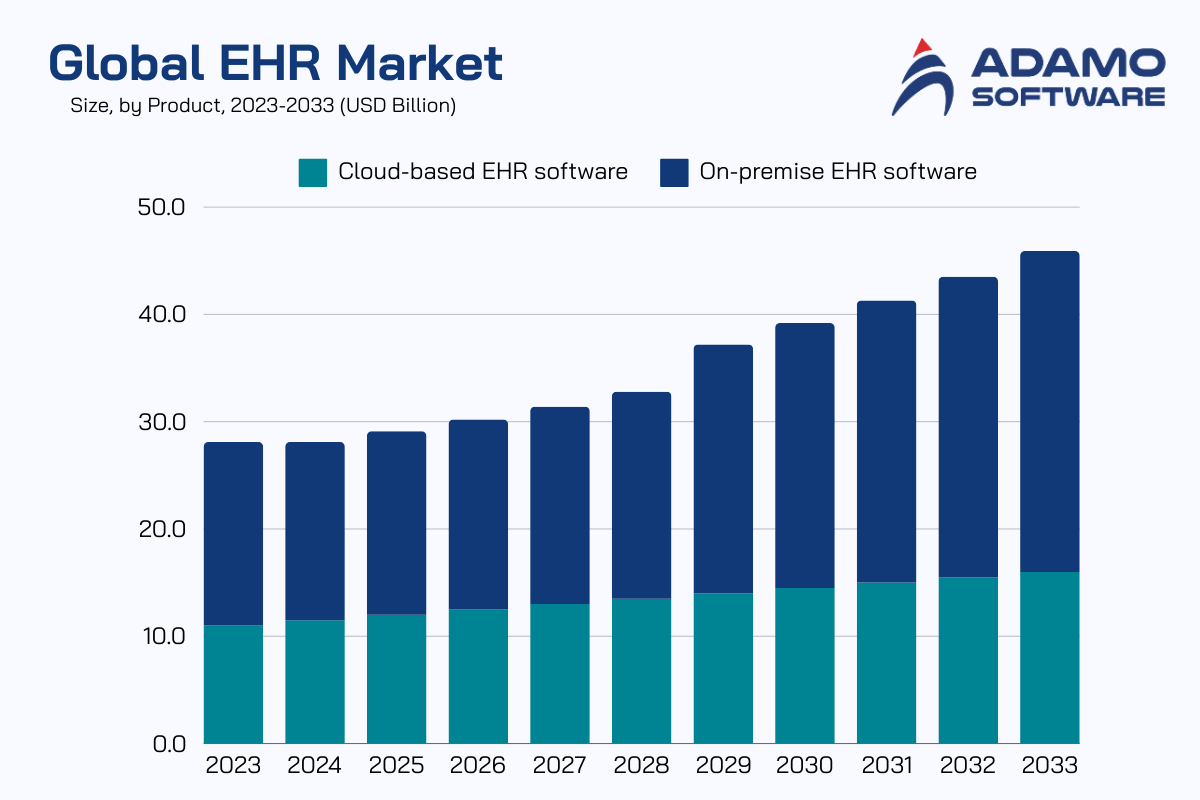
II. Benefits of An Integrated EHR
There are many EHR integration benefits that are huge and transformative for the healthcare industry. These benefits are not just limited to convenience but transform the ways in which healthcare is provided. Integration of EHR has a positive impact on increasing effectiveness, reducing errors, and enhancing patient involvement. This results in improved patient health status and integration of care.
EHR integration is among the most effective ways of improving quality in healthcare delivery and creating a coordinated healthcare system. Therefore, it is particularly crucial for healthcare providers to quickly recognize its potential and how EHR integration benefits them in the long term. Below are some of its key benefits that you must be aware of:
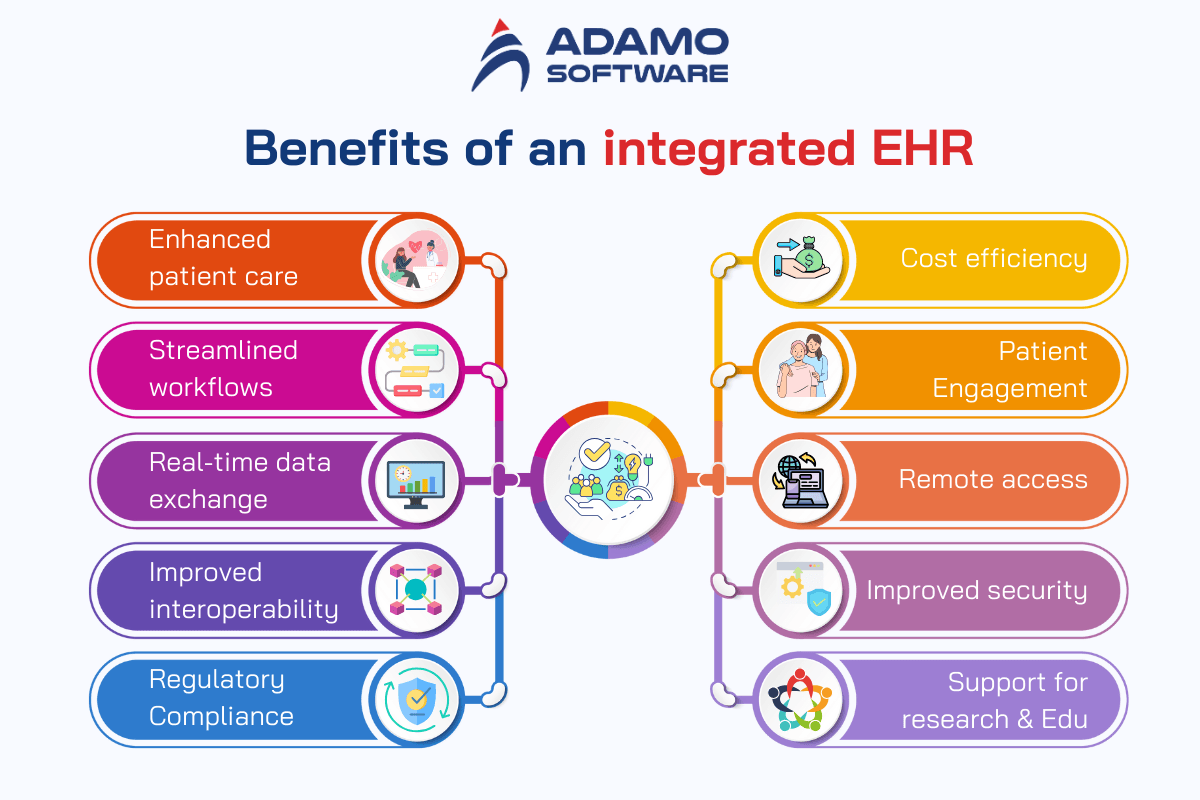
1. Enhanced Patient Care
One of the primary EHR integration benefits is immediate access to a patient’s complete medical history. This includes past treatments, medications, allergies, and lab results. It helps in decision-making, diagnosis, and planning for treatment since it offers a broad perspective of the patient’s condition. By reducing errors such as mismatched or wrong diagnoses, EHRs contribute to improving the quality of patient care.
2. Streamlined Workflows
EHR integration benefits also include automating time-consuming tasks such as data entry, appointment scheduling, and billing. This gives healthcare professionals more time to focus on their patients and important tasks. They would also be able to avoid burnout from more administrative work. This means the common mistakes associated with manual documentation and other administrative tasks can also be significantly reduced.
Therefore, the overall productivity and efficiency of the whole healthcare system will also be improved.
3. Real-Time Data Exchange
Another significant factor of EHR integration benefits is the seamless and instantaneous exchange of patient information. This helps various healthcare providers, labs, pharmacies, and other stakeholders to collaborate and gain access to patient data in real time. In this way, all caregivers taking care of the patient always have the latest information about that person.
Hence, they can all coordinate and execute the most suitable treatment plan for their patients based on real-time updates. This capability is essential in emergencies because a clinician may need to review the patient data to make important decisions.
4. Improved Interoperability
EHR integration benefits extend to improved communication and data sharing across different medical departments and facilities. This has helped eliminate complications that were brought about by fragmented care. Therefore, it helps ensure that everyone attending to a certain patient is on one page. Due to such a broad range of data sharing, the organization and coordination of the healthcare services and the patient’s care are enhanced.
5. Regulatory Compliance
Managing regulatory compliance manually can be challenging, but EHR integration benefits include the automation of tracking and updating compliance requirements. This means that healthcare providers will always be able to stick to the new set of legal requirements. Therefore, they will not be penalized and will be trusted by the public and the law.
6. Cost Efficiency
Another major point in the EHR integration benefits is the cut down of operational costs. EHR systems are cost efficient because they cut costs on paperwork, storage space, and duplicated tests and procedures. This is especially helpful in large institutions such as hospitals that have many patients’ records. Other sustainable advantages include improved diagnostic accuracy and reduced legal risks in the long term, which eventually lead to cost reduction.
7. Patient Engagement
EHR integration benefits patients by giving them access to their health records and allowing active participation in their care. People can get information through patient portals including the results of tests, their treatment process, and other related information. This helps better compliance with the prescribed treatment regimens, improves patients’ satisfaction, and improves health status.
8. Remote Access
With EHR integration benefits, healthcare providers can access patient data from any location. This capability is needed for consultation with other professionals, examination of patient records, and virtual consultations. It ensures that the consultations are made and conducted on time, despite the specialist being not within the region.
9. Improved Security
EHR integration benefits include robust security features designed to protect sensitive patient information from unauthorized access and cyber threats. HIPAA and all privacy regulations aid in protecting the patient’s information in EHR and minimize the risk of data leakage. This is beneficial for both patients and healthcare providers.
10. Support for Research and Education
Lastly, EHR integration benefits support research and education by anonymizing and aggregating extensive sets of patient data. This provides a reliable data source for analytical research and clinical and treatment research for medical improvement. Also, it is used in medical education. This can educate students and especially healthcare professionals with real cases to facilitate healthcare progress.
You can explore more about What is EMR in Healthcare: Types, Features, Cost here.
III. 8 Best EHR-integrated Software for Practice Management
When choosing the right EHR-integrated software for practice management, understanding the EHR integration benefits of each option is crucial. Careful assessments of all options will help you understand the specialty of each and choose the one that suits your needs the most.
Even though there is a lot of EHR software on the market, we have selected the most outstanding ones for your reference. Here are eight top choices that offer significant advantages in enhancing practice management:
1. NexHealth
NexHealth is renowned for its robust patient experience platform, which significantly enhances EHR integration benefits. The NexHealth Synchronizer™ allows healthcare practitioners to integrate with multiple EHR systems with just one API. Thus, it helps cut the time for integration from 18 months to just 6 weeks. Such fast integration increases the productivity of the administrative workplace, and the clinics can get patient acquisition and retention solutions.
Hence, through employing these processes, NexHealth helps clinics to save time and increase the level of patient satisfaction.
2. athenahealth
athenahealth is a cloud-based EHR system. This characteristic makes it suitable for small to medium-sized practices that may not have the resources to invest in IT. Its intuitive design and ease of integration with multiple devices highlight the EHR integration benefits of cloud-based systems. The architecture of athenahealth guarantees the updated and availability of patient data to enhance the quality of the treatment and the functionality of the business. It is the system that will aid clinics in increasing efficiency, decreasing paperwork, and offering better patient care.
3. eClinicWorks
eClinicWorks is an all-encompassing healthcare tool that integrates EHR, telehealth, patient engagement, and revenue cycle management. It highlights the EHR integration benefits of a comprehensive platform. Its virtual assistant, Eva, aids the users in running their practice more efficiently by responding to queries and linking. This all-encompassing solution makes it possible to coordinate key processes related to patient care and practice operations, engage patients, and improve revenue cycles.
4. NextGen Healthcare
NextGen Healthcare offers a suite of products including EHR, health information exchange, and revenue cycle management. It emphasizes the EHR integration benefits for diverse practice sizes. NextGen Healthcare serves multi-specialty hospitals and small practices. It offers solutions that can be easily scaled up to meet the needs of the clients and improve patient experience.
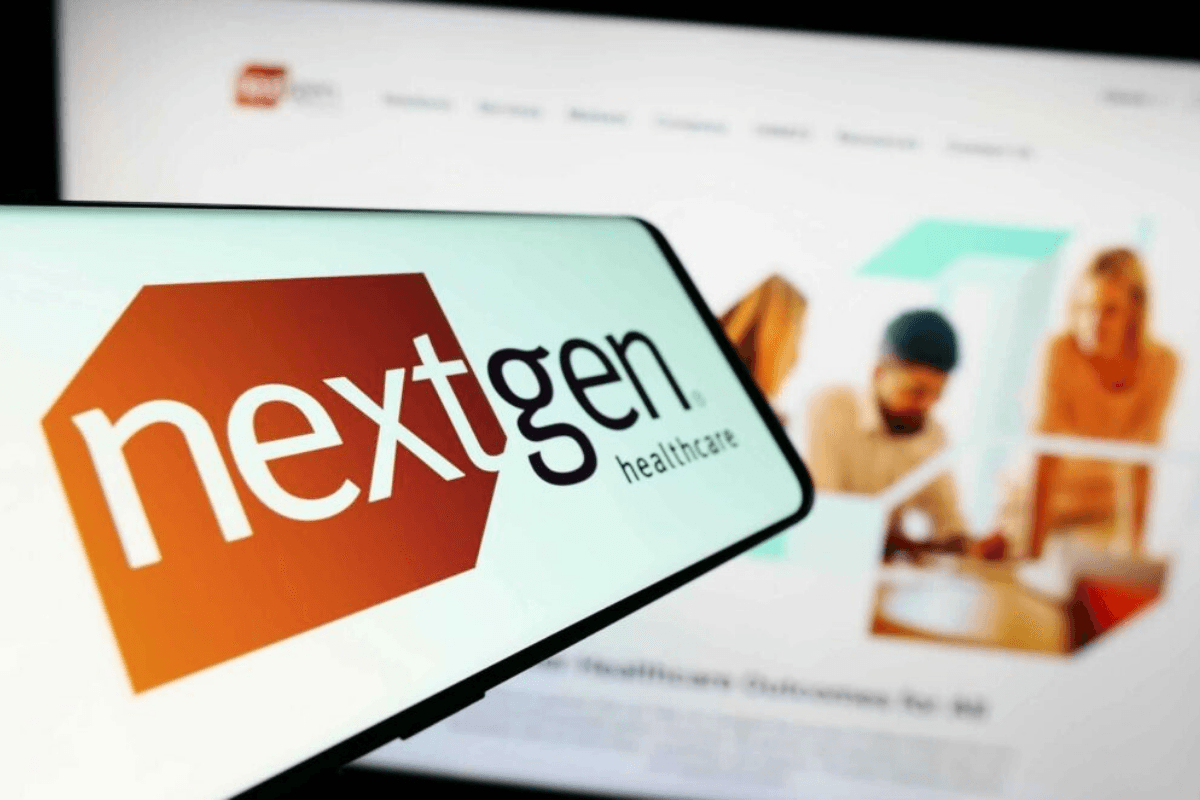
NextGen Healthcare’s emphasis on patient self-sufficiency and the optimization of the practitioner’s schedule guarantee is a crucial point. It ensures that medical staff can offer excellent patient care with better administration of administrative work.
5. CareCloud
Are you looking for the most comprehensive set of solutions for EHR integration, practice management, and revenue cycle management? Then CareCloud is one of the companies that can provide that to clients.
Most of the real-time intelligence solutions such as CareCloud Charts highlight point-of-care decision support, which is a sign of the integration of EHRs. CareCloud helps in making the right decision and increases practice efficiency and patients’ satisfaction with the help of clinical, financial, and operational information. This assists in the further improvement of the practices and the practices’ relative financial conditions.
6. Arcadia
Arcadia runs within EHR-integrated analytics. The EHR integration can provide remarkable benefits including Care Management and Risk Adjustment. The platform also expands and filters superior patient information that would enhance patient care and Patient Health Data Equality. Because of this, it is always easy to implement and make the best out of EHR systems across various implementations. From there, you can work on addressing the risks of poor healthcare quality and helping in decision making processes.
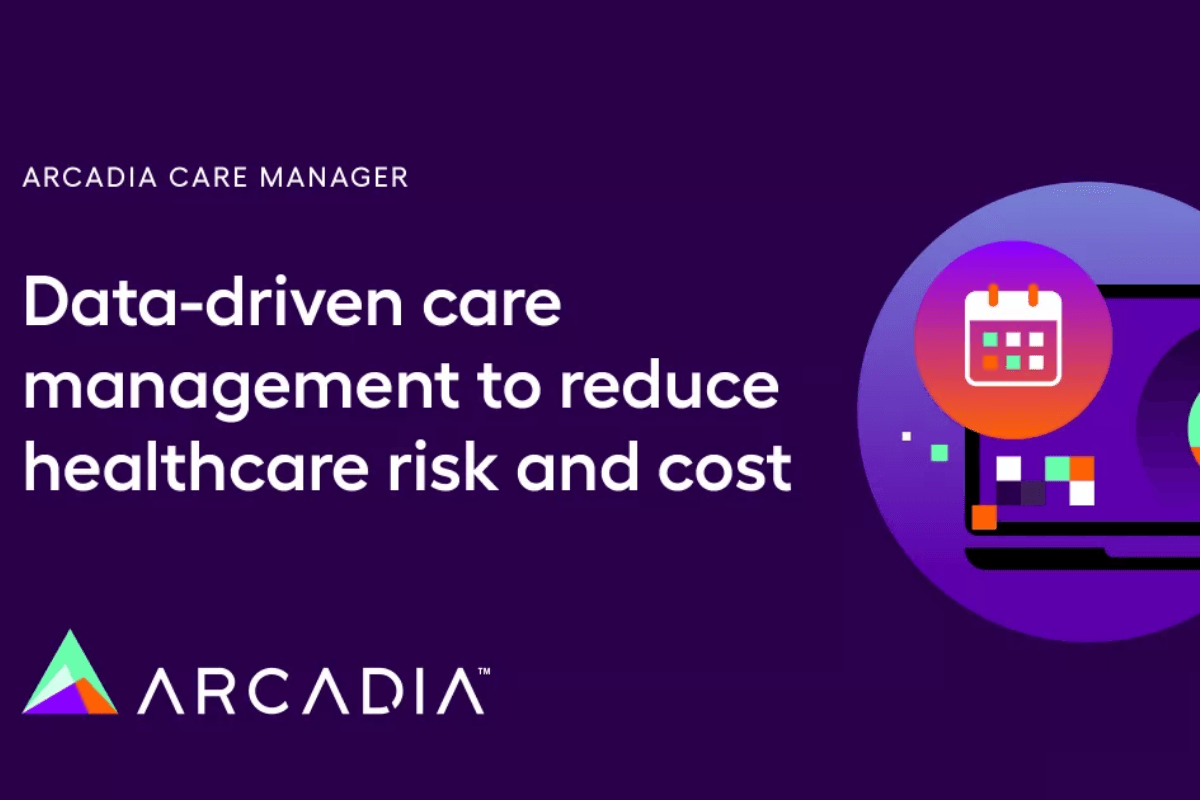
7. Vim
Vim’s point-of-care connection platform helps enhance the practicability of EHRs through the process of data integration and automation. These features once again highlight some of the EHR integration benefits. The care management in this open-ended software solution is client specific, and it also allows for the integration of data from many systems. It promotes value-based care by providing data analytics and automation of these data, which helps achieve better patient outcomes.
8. Redox
Redox has healthcare software with modularity built into it to enable EHR connection integration through a single API. This is a significant leverage in EHR connectivity.
This approach connects several products, payers, and providers, improving care plan coordination and reducing integration difficulties. Thus, it is obvious how Redox aids healthcare organizations in preventing data fragmentation and enhancing the effectiveness of processes. This results in improved flow of information, effective delivery of health services, and an interconnected health system.
IV. Future of EHR Integration and Healthcare
If we take a look at the data mentioned before, it can be inferred from there that the future of EHR integration is very promising. The healthcare sector is now constantly changing because of various new trends and innovative solutions. One of the major trends detected is the switch to cloud-based EHR systems. This is on the rise because it allows adopters to be flexible, scale their systems, and save much more costs than on-premises traditional systems.
Artificial intelligence (AI) and machine learning are also gradually being incorporated into EHR systems. The integration of these technologies will help improve data analysis, clinical decisions, and task automation for administrative work.
Apart from those recent technologies, interoperability is still one of the most important considerations when it comes to EHR integration benefits. This is because we need to enhance and standardize the process of data exchange between various EHR systems. Standards like Fast Healthcare Interoperability Resources (FHIR) are gaining popularity. It allows for a smooth transition of data among different EHR systems, mobile devices, and other healthcare software.
Without a doubt, the effects that these changes will have on the healthcare industry are transformative. The more adopted EHR integration becomes, the better it is for both medical staff and patients. Workflows can then be optimized, leading to better productivity, better patient care, and increased patient engagement.
In addition to that, EHR integration can also make room for more data-driven decision-making processes in hospitals and personalized care. This is because healthcare staff now have access to real-time data of patient health status, and make decisions accordingly.
V. Partner with Adamo Software to achieve successful EHR integration
Are you looking for a partner to work with for your EHR system? Adamo Software might just be the one that you need!
Working with Adamo Software for your EHR integration ensures a smooth transition to a better and more technology-based practice. Adamo Software is a healthcare software development company from Vietnam that offers the best mobile app development, web solutions, AI, and blockchain services. Our skilled team is fully committed to providing more efficient and affordable software with the shortest time-to-market that will correspond to the demands of your EHR integration.

Adamo Software boasts a full-cycle development service delivery that encompasses the conceptualization of a project to its implementation and next support. We use all our competence in the market and technical experience to deliver solutions that are not only satisfactory but also beyond your expectations. That is why our approach is people-focused and quality-oriented. We guarantee that the solutions we implement will bring maximum benefits from the EHR integration and correspond to your requirements.
We have a proven track record of successful projects with clients worldwide across different industries. Therefore, we can help you create interactive and user-friendly solutions that guarantee an EHR system for increased productivity and better patient outcomes. With our help, you will gain a competitive advantage in the healthcare industry.
Contact us today for a consultation.



